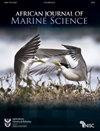Estimating the economic income and social contributions derived from the South African west coast rock lobster fishery
IF 1.4
4区 生物学
Q3 MARINE & FRESHWATER BIOLOGY
引用次数: 0
Abstract
The west coast rock lobster Jasus lalandii fishery is South Africa’s third-most-valuable fishery, although the stock is currently estimated at <2% of its pristine biomass. Recent ecologically necessary reductions in the total allowable catch (TAC) had negative economic impacts on stakeholders; however, these have not been quantified as current research into the socio-economic aspects of this fishery is limited. This study explored trends in the net seasonal income and employment opportunities of the fishery in the seasons 2016/17–2018/19 for its different sectors and representative individuals, by analysing records from the government authority and data collected from stakeholders in this fishery through interviews (n = 30) and surveys (n = 19). The results indicate that though the fishery was profitable over the three seasons, with the estimated contribution to gross national income ranging from R453 185 000 (US$33 302 714) in 2018/19 to R564 721 000 (US$41 499 039) in 2017/18, the decreasing quotas had a disproportionate negative effect on some of the representative individuals examined within the different sectors. These worrying economic trends for the different stakeholders indicate that, for effective resource recovery and equitable distribution of fishing opportunities, the socio-economic context of the fishery must be studied more extensively and must be included more directly in management decisions.估算南非西海岸岩龙虾渔业的经济收入和社会贡献
西海岸岩龙虾渔业是南非第三大最有价值的渔业,尽管目前估计其种群数量不到其原始生物量的2%。最近的生态必要的总允许捕获量(TAC)的减少对利益相关者产生了负面的经济影响;但是,由于目前对这种渔业的社会经济方面的研究有限,这些还没有量化。本研究通过分析政府当局的记录以及通过访谈(n = 30)和调查(n = 19)从该渔业的利益相关者那里收集的数据,探讨了2016/17-2018/19季节不同部门和代表性个人的渔业净季节性收入和就业机会的趋势。结果表明,尽管渔业在三个季节都是有利可图的,对国民总收入的贡献估计从2018/19年度的45318.5万兰特(3330714美元)到2017/18年度的56472.1万兰特(41499039美元)不等,但配额的减少对不同部门内的一些代表性个体产生了不成比例的负面影响。对不同利益攸关者来说,这些令人担忧的经济趋势表明,为了有效地恢复资源和公平分配捕鱼机会,必须更广泛地研究渔业的社会经济背景,并更直接地纳入管理决策。
本文章由计算机程序翻译,如有差异,请以英文原文为准。
求助全文
约1分钟内获得全文
求助全文
来源期刊

African Journal of Marine Science
生物-海洋与淡水生物学
CiteScore
2.60
自引率
16.70%
发文量
17
审稿时长
6-12 weeks
期刊介绍:
The African (formerly South African) Journal of Marine Science provides an international forum for the publication of original scientific contributions or critical reviews, involving oceanic, shelf or estuarine waters, inclusive of oceanography, studies of organisms and their habitats, and aquaculture. Papers on the conservation and management of living resources, relevant social science and governance, or new techniques, are all welcomed, as are those that integrate different disciplines. Priority will be given to rigorous, question-driven research, rather than descriptive research. Contributions from African waters, including the Southern Ocean, are particularly encouraged, although not to the exclusion of those from elsewhere that have relevance to the African context. Submissions may take the form of a paper or a short communication. The journal aims to achieve a balanced representation of subject areas but also publishes proceedings of symposia in dedicated issues, as well as guest-edited suites on thematic topics in regular issues.
 求助内容:
求助内容: 应助结果提醒方式:
应助结果提醒方式:


